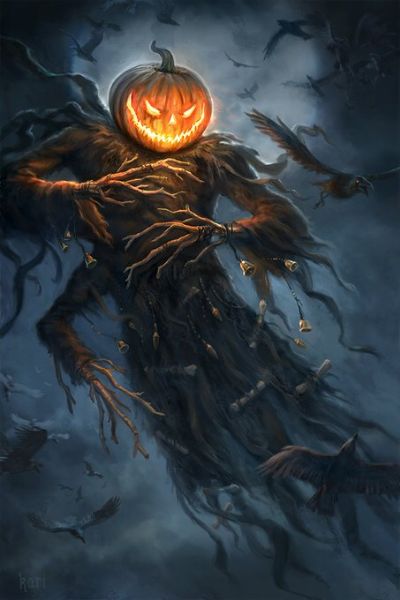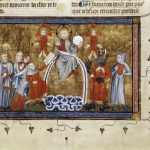Stingy Jack, also known as Jack the Smith, Drunk Jack, Flaky Jack , Monstrous Jack or Jack-o’-lantern, is a folkloric character sometimes associated with Halloween while also acting as the mascot of the holiday.

In 1851, Hercules Ellis presumably wrote and published “The Romance of Jack-o’-Lantern,” a romantic poem, in poetry anthology The Rhyme Book. The poem described Stingy Jack’s encounters with an angel and with Satan.
The Romance of Jack-o’-Lantern
According to the story, Stingy Jack invited the Devil to have a drink with him. True to his name, Stingy Jack didn’t want to pay for his drink, so he convinced the Devil to turn himself into a coin that Jack could use to buy their drinks. Once the Devil did so, Jack decided to keep the money and put it into his pocket next to a silver cross, which prevented the Devil from changing back into his original form.
Jack eventually freed the Devil, under the condition that he would not bother Jack for one year and that, should Jack die, he would not claim his soul. The next year, Jack again tricked the Devil into climbing into a tree to pick a piece of fruit. While he was up in the tree, Jack carved a sign of the cross into the tree’s bark so that the Devil could not come down until the Devil promised Jack not to bother him for ten more years.
Soon after, Jack died. As the legend goes, God would not allow such an unsavory figure into heaven. The Devil, upset by the trick Jack had played on him and keeping his word not to claim his soul, would not allow Jack into hell. He sent Jack off into the dark night with only a burning coal to light his way. Jack put the coal into a carved-out turnip and has been roaming the Earth with ever since.
There are variations on the legend. Some of which include:
- The Devil mockingly tossing a coal from the fires of Hell at Jack, which Jack then places in the turnip.
- Jack tricking/trapping the Devil a variety of ways, including placing a key or other item in the Devil’s pocket when the Devil is suspended in the air or plucking an apple from a tree. Some versions include a “wise and good man” or even God helping Jack to prevail over the Devil.
- Jack’s bargain with the Devil being different. In some variations, the deal is only a temporary bargain, but the Devil, embarrassed and vengeful, refuses Jack entry after Jack dies.
- Jack is considered a greedy man and is not allowed into either Heaven or Hell, without anything having to do with the Devil.








